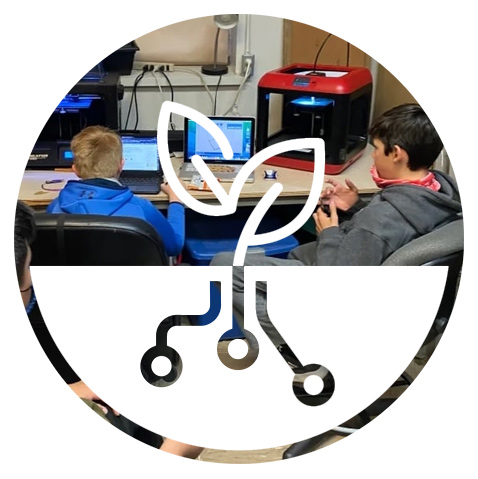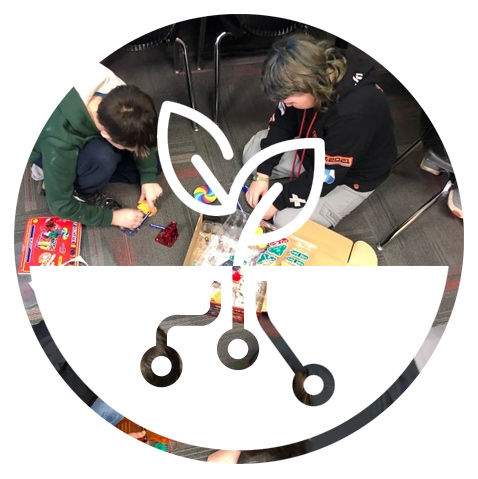Projects We Fund
We provide grants for Rural Technology Education projects and Assistive Technology projects. If you are interested in applying for funding to support your project, please review the grant types below and be sure you submit to the correct application. We review and award grants every 30-60 days, and there are no specific deadlines for applying. We currently only provide grants to schools and organizations operating in the United States.
Rural Technology Education Grants
Most of our work manifests through our funding of teacher and student-led projects in public schools and libraries. Projects we fund are designed to help spark student interest in technology-based careers like computer science, computer engineering, information technology, programming, cyber security, robotics, or similar areas. In some cases, these project donations may include a few smaller items like a Raspberry Pi microcomputer or a robotics kit. In other situations, we partner with school districts to provide entire Maker Spaces equipped with things like circuit development kits, 3-D printers, robotics kits, and classroom sets of individual microcomputers to build upon. We also frequently fund early-stage robotics classes, teams, and clubs interested in project-based learning that culminates in competitive events like FIRST. There are several examples of projects have funded on our social media feeds and our impact page.
While we don’t have a perfectly rigid set of guidelines we apply toward selecting projects we fund, we do have a set of principles we use to make our decision. Project applications can be submitted to us at the application link below.
Most RTF grants are $500–$2500. Please request the amount your budget justifies; maximum awards are uncommon and require strong evidence of broad impact.
We also actively seek projects to fund on DonorsChoose.org and will accept referrals to those projects.
We typically fund RURAL TECH Projects that…
- Help introduce and teach students about computer technology. This includes computer science, programming, robotics, engineering, and design.
- Teach students to solve real-world, human service, and community impacting problems using computer technology.
- Are conducted by schools in rural or high-poverty areas.
- Are designed to reach multiple students within a school, equitably.
- Help establish ongoing student interest groups like maker spaces and coding clubs.

We DO NOT fund RURAL TECH Projects that…
- Merely use computers to teach traditional, not computer-related subjects.
- Are conducted by private or charter schools.
- Are limited to only a few students.
-
Are exclusively for students in gifted and talented programs.
- Are Esports or VR projects.

Assistive Technology (AT) Grants
We provide funding for Assistive Technology equipment to increase accessibility for students with disabilities in public schools and libraries. These donations include equipment and software that promote student inclusion and participation. Projects we have funded include laptops or tablets to utilize speech-to-text, text-to-speech, word processing, magnification, audiobooks, and other accessibility features. They also include Augmentative and Alternative Communication devices, whether a dedicated communication device or tablet used for AAC purposes, adaptive equipment such as keyboards or mouses that make technology accessible, and other software or applications that increase education and technology access for individuals. Since AT varies widely, we look for projects that specifically provide accessibility to a student or group of students and include technology access for inclusive purposes.
While we don’t have a perfectly rigid set of guidelines we apply toward selecting projects we fund, we do have a set of principles we use to make our decision. Project applications can be submitted to us at the application link below.
Most RTF grants are $500–$2000. Please request the amount your budget justifies; maximum awards are uncommon and require strong evidence of broad impact.
We also actively seek projects to fund on DonorsChoose.org and will accept referrals to those projects.
We typically fund ASSISTIVE TECH Projects that…
- Are conducted by schools in rural or high-poverty areas.
- Help establish accessibility for a student or students
- Are utilized in a classroom, resource room, library, or for service-based visits

We DO NOT fund ASSISTIVE TECH Projects that…
- Do not provide a specific accessibility feature(s)
- Do not provide a technology-based solution

